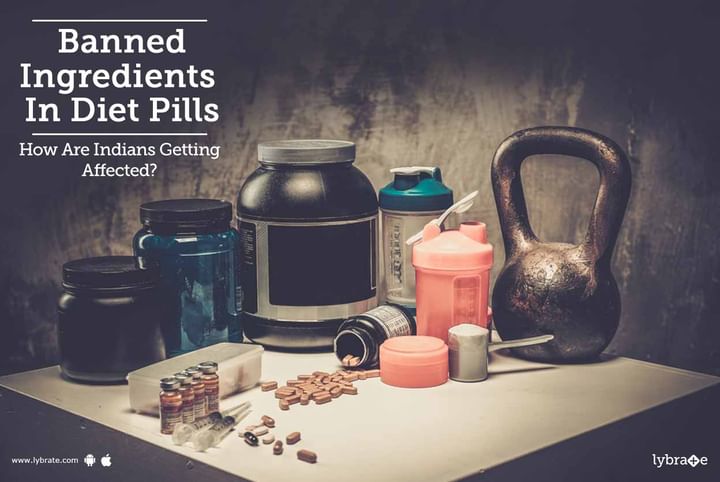Banned Ingredients In Diet Pills - How Are Indians Getting Affected?
The lure of quick weight loss, muscle building or better sexual enjoyment may land one in trouble, according to a study on dietary supplements published in JAMA Open. The study pointed out that most dietary supplements sold in India contain one or more than one pharmaceutical ingredients that are banned in the U.S.
Most of these supplements are designed for weight loss, muscle building or enhancement of sexual enjoyment. The study reveals that the banned components in these supplements may cause serious health hazards.
The Problem Causing Ingredients:
In the US context, 776 dietary supplements have been found to contain unapproved or banned ingredients such as sildenafil, sibutramine, synthetic steroids etc., which may precipitate conditions like stroke, kidney malfunction etc. The survey was carried out over a period of 10 years from 2007 to 2016. Yet U.S. regulators say that they have been able to test only a portion of the dietary supplement market.
How Are Indians At Risk?
In the Indian context, the problem may be much bigger, since most of these banned substances are easily available here. One can get such substances through physical as well as online stores. There are no guidelines or regulations to control the manufacture and sale of dietary supplements in India. There is no authority for sampling and testing dietary supplements. If consumption is any indicator, the dietary supplement market in India is poised to grow to about $10 billion in the foreseeable future. Rising disposable income and changing lifestyles are adding to the demand for such formulations. Without any control or regulation, the spread of dietary supplements containing banned ingredients is likely to abate a variety of maladies.
What Steps Have Been Taken By FSSAI?
However, off late, Indian authorities like the Food Safety and Standards Authority of India (FSSAI) have taken note of the increasing sales and consumption of dietary supplements. The organization is working towards strengthening the packaging norms for such products. Yet this is not the real job of regulators. Regulators like FSSAI need to sample and test these products to ascertain that there are no banned ingredients.
Nevertheless, the organization does not yet have neither the regulatory mandate nor the required infrastructure to conduct such tests.
How Are Companies Exploiting The Rules?
If the absence of regulatory framework and infrastructure is one reason for the present state of affairs regarding product sampling, the other reason is the overlap between the functions of DCGI (Drugs Controller General of India) and FSSAI. While DCGI is tasked with regulating drugs and medicines, food supplements come under the purview of FSSAI. Companies often tweak their formulations to circumvent DCGI oversight and launch products as food supplements. This saves them the hassle of going through the oversight of DCGI.
However, this imperils the common man.
Conclusion:
It is time that food safety is given top priority at par with drug safety and sampling and testing to be carried out on all food supplements. It should not be left to common man to know if a supplement contains a banned substance; instead, such supplement should not be allowed to come to the market at all.



+1.svg)
